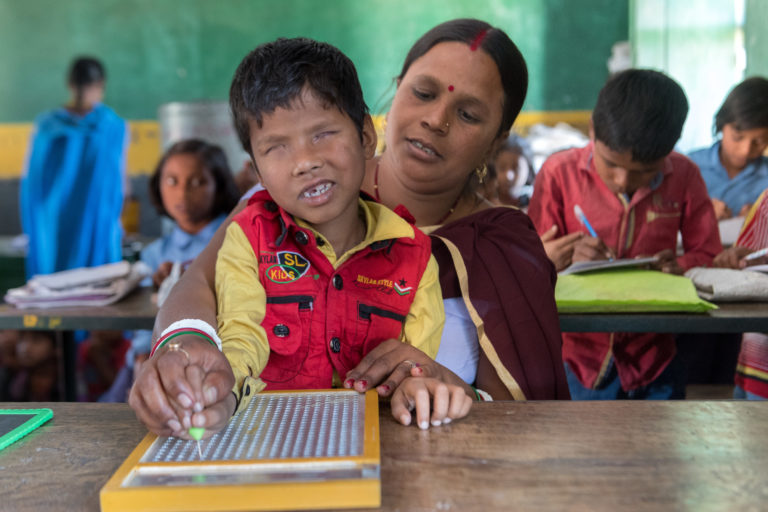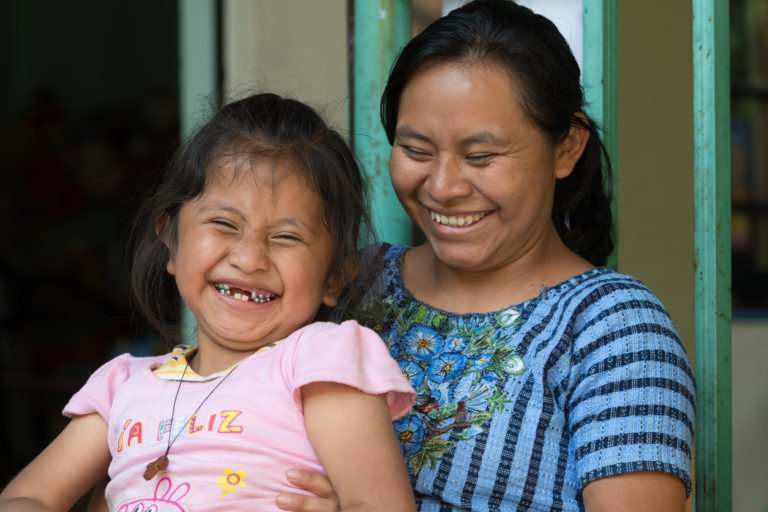Home / Psychology & Mental Health / Inclusive Teaching / Integrated Healthcare for Children with Developmental Disabilities / The importance of family-centred care
This article is from the free online
Integrated Healthcare for Children with Developmental Disabilities


Reach your personal and professional goals
Unlock access to hundreds of expert online courses and degrees from top universities and educators to gain accredited qualifications and professional CV-building certificates.
Join over 18 million learners to launch, switch or build upon your career, all at your own pace, across a wide range of topic areas.


 Avinash (6) at a mainstream school in India – he is being taught Braille. © CBM/argum/Einberger
Avinash (6) at a mainstream school in India – he is being taught Braille. © CBM/argum/Einberger Azucena Tzina Sicay (6) with her mother in Guatemala. © CBM/argum/Einberger
Azucena Tzina Sicay (6) with her mother in Guatemala. © CBM/argum/Einberger Kim (16) playing chess at his home in Negros, Philippines. © CBM
Kim (16) playing chess at his home in Negros, Philippines. © CBM





